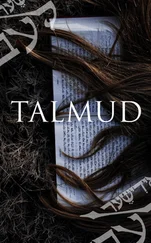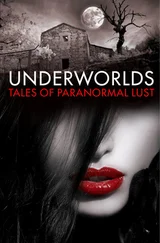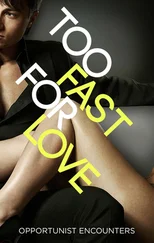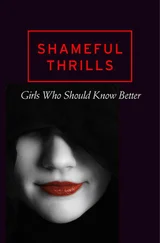Various - Auld Lang Syne
Здесь есть возможность читать онлайн «Various - Auld Lang Syne» — ознакомительный отрывок электронной книги совершенно бесплатно, а после прочтения отрывка купить полную версию. В некоторых случаях можно слушать аудио, скачать через торрент в формате fb2 и присутствует краткое содержание. Жанр: Поэзия, foreign_poetry, на английском языке. Описание произведения, (предисловие) а так же отзывы посетителей доступны на портале библиотеки ЛибКат.
- Название:Auld Lang Syne
- Автор:
- Жанр:
- Год:неизвестен
- ISBN:нет данных
- Рейтинг книги:5 / 5. Голосов: 1
-
Избранное:Добавить в избранное
- Отзывы:
-
Ваша оценка:
- 100
- 1
- 2
- 3
- 4
- 5
Auld Lang Syne: краткое содержание, описание и аннотация
Предлагаем к чтению аннотацию, описание, краткое содержание или предисловие (зависит от того, что написал сам автор книги «Auld Lang Syne»). Если вы не нашли необходимую информацию о книге — напишите в комментариях, мы постараемся отыскать её.
Auld Lang Syne — читать онлайн ознакомительный отрывок
Ниже представлен текст книги, разбитый по страницам. Система сохранения места последней прочитанной страницы, позволяет с удобством читать онлайн бесплатно книгу «Auld Lang Syne», без необходимости каждый раз заново искать на чём Вы остановились. Поставьте закладку, и сможете в любой момент перейти на страницу, на которой закончили чтение.
Интервал:
Закладка:
Various
Auld Lang Syne Selections from the Papers of the «Pen and Pencil Club»
CRADLE
The human heart is cradle of deep love,
Which growing and expanding from its birth,
Ever finds space within that living cot;
Howe’er remotely o’er this beauteous earth
Its subtle influences may joy impart,
Whilst nestling in the human heart.
The human mind is cradle of high thought,
Ever aspiring to extend its sphere,
To penetrate those mysteries of life
Philosophy has fail’d to render clear.
Howe’er expansive, thought will ever find
Its cradle in the human mind.
The human soul is cradle of deep faith,
Of aspirations, and of purpose strong,
To kindle into life the seeds of truth —
Eradicate the germs of vice and wrong.
Howe’er these seeds develop and increase,
Within man’s soul they’ll find their place.
Three living cradles in one living form,
Expanding ever from their early birth;
High thought and sweet affection in ye dwell,
And Faith which hallows all things on this earth.
Each human being in himself may find
Three living cradles – soul, heart, mind.
THE SOUND OF BELLS
O HAPPY bells that thrill the air
Of tranquil English summer-eves,
When stirless hang the aspen leaves,
And Silence listens everywhere.
And sinks and swells the tender chime,
Sad, as regret for buried fears,
Sweet, as repentant yearning tears —
The fit voice of the holy time.
O wond’rous voice! O mystic sound!
We listen, and our thoughts aspire
Like spiritual flame, from fire
That idly smoulders on the ground.
Forgotten longings have new birth
For better, purer, nobler life,
Lifted above the noisy strife
That drowns the music of this earth.
And human sorrow seems to be
A link unto diviner things,
The budding of the spirit’s wings
That only thus can soar – and see.
The twilight fades – the sweet bells cease,
The common world’s come back again,
But for a little space, its pain
And weariness are steep’d in peace.
MIRROR
I SEE myself reflected in thine eyes,
The dainty mirrors set in golden frame
Of eyelash, quiver with a sweet surprise,
And most ingenuous shame.
Like Eve, who hid her from the dread command
Deep in the dewy blooms of paradise;
So thy shy soul, love calling, fears to stand
Discover’d at thine eyes.
Or, like a tender little fawn, which lies
Asleep amid the fern, and waking, hears
Some careless footstep drawing near, and flies,
Yet knows not what she fears.
So shrinks thy soul, but, dearest, shrink not so;
Look thou into mine eyes as I in thine,
So our reflected souls shall meet and grow,
And each with each combine
In something nobler; as when one has laid
Opposite mirrors on a cottage wall;
And lo! the never-ending colonnade,
The vast palatial hall.
So our twin souls, by one sweet suicide,
Shall fade into an essence more sublime;
Living through death, and dying glorified,
Beyond the reach of time.
SHADOWS
Shadow gives to sunshine brightness,
And it gives to joy its lightness;
Shadow gives to honour meekness,
And imparts its strength to weakness;
Shadow deepens human kindness,
Draws the veil from mental blindness;
Shadow sweetens love’s own sweetness,
And gives to life its deep intenseness;
Shadow is earth’s sacredness,
And the heaven’s loveliness;
Shadow is day’s tenderness,
And the night’s calm holiness;
Shadow’s deepest night of darkness
Will break in day’s eternal brightness.
SHADOWS
In the band of noble workers,
Seems no place for such as I —
They have faith, where I have yearning,
They can speak where I but sigh,
They can point the way distinctly
Where for me the shadows lie.
Lofty purpose, strong endeavour,
These are not ordain’d for me —
Wayside flower might strive for ever,
Never could it grow a tree —
Yet a child may laugh to gather,
Or a sick man smile to see.
So I too in God’s creation
Have my own peculiar part,
He must have some purpose surely
For weak hand and timid heart,
Transient joys for my diffusing,
For my healing transient smart.
Just to fling a moment’s brightness
Over dreary down-trod ways,
Just to fan a better impulse
By a full and ready praise —
Pitying where I may not succour,
Loving where I cannot raise.
ORGAN-BOYS.
A LEGEND OF LONDON.
By Thomas Ingoldsby, Minor
In days – not old – a Demon lived,
And a terrible Fiend was he,
For he ground and he ground
All London around,
A huge barrel-organ of hideous sound,
Incessantly!
From morning’s light
Till the deep midnight,
In all sorts of streets and all sorts of squares.
Up the cul-de-sacs – down the thoroughfares,
Where Thames rolls his waters from Greenwich to Kew,
Not a lane could you find that he didn’t go through.
You heard him at all times when most unaware,
In quiet back-parlours up five flights of stair;
When you ate, when you drank, when you read morning prayer,
Or sat dozing awhile in an easy armchair,
Or read a new novel – or talk’d to a friend,
Or endeavour’d to settle accounts without end,
Or when grief (or champagne), caused an ache in your head,
Or you promised yourself to lie latish in bed,
It was all the same
That Demon came,
Grind! grind!
Peace there was none,
Under the sun;
That odious organ never had done.
Sick, sad, or sorry,
No end to the worry.
No sort of grief
Brought the slightest relief;
You might send out to say you were dying or dead,
The organ ground on as if nothing were said!
Grind! grind!
Till you lost your mind.
No use to scold, or draw down the blind,
The fiend only ground more loud and more fast,
Till you had to give him a shilling at last.
So that having tormented you madly that day,
He would surely next morning come round the same way,
And grind and grind – till in frenzy of pain,
You should bribe him once more – just to come back again!
Know ye, my friends, who this Fiend may be?
Here is the key to the mystery —
It is Tubal Cain! who – the Bible says —
Invented organs in very old days,
And for that dread crime, so atrocious and black,
Was sentenced thenceforth to bear one on his back,
A heavier fate (as was justly his due),
Than befell his Papa when poor Abel he slew:
For Cain, killing one man, was let off quite cheap —
Tubal murdered us all – at least “murder’d our sleep.”
THE ORGAN-BOY
Great brown eyes,
Thick plumes of hair,
Old corduroys
The worse for wear.
A button’d jacket,
And peeping out
An ape’s grave poll,
Or a guinea-pig’s snout.
A sun-kiss’d face
And a dimpled mouth,
With the white flashing teeth,
And soft smile of the south.
A young back bent,
Not with age or care,
But the load of poor music
’Tis fated to bear.
But a common-place picture
To common-place eyes,
Yet full of a charm
Which the thinker will prize.
They were stern, cold rulers,
Those Romans of old,
Scorning art and letters
For conquest and gold;
Yet leavening mankind,
In mind and tongue,
With the laws that they made
And the songs that they sung.
Sitting, rose-crown’d,
With pleasure-choked breath,
As the nude young limbs crimson’d,
Then stiffen’d in death.
Piling up monuments
Greater than praise,
Thoughts and deeds that shall live
To the latest of days.
Adding province to province,
And sea to sea,
Till the idol fell down
And the world rose up free.
Интервал:
Закладка:
Похожие книги на «Auld Lang Syne»
Представляем Вашему вниманию похожие книги на «Auld Lang Syne» списком для выбора. Мы отобрали схожую по названию и смыслу литературу в надежде предоставить читателям больше вариантов отыскать новые, интересные, ещё непрочитанные произведения.
Обсуждение, отзывы о книге «Auld Lang Syne» и просто собственные мнения читателей. Оставьте ваши комментарии, напишите, что Вы думаете о произведении, его смысле или главных героях. Укажите что конкретно понравилось, а что нет, и почему Вы так считаете.
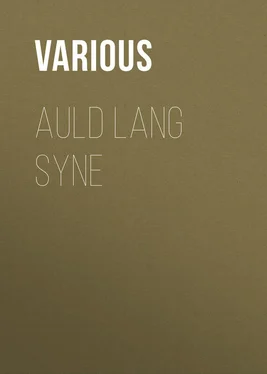
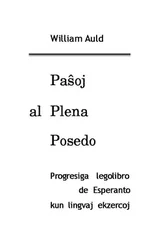
![Various Various - Selected List of Nimmo, Hay, & Mitchell's Publications [1890]](/books/571841/various-various-selected-list-of-nimmo-hay-mit-thumb.webp)

